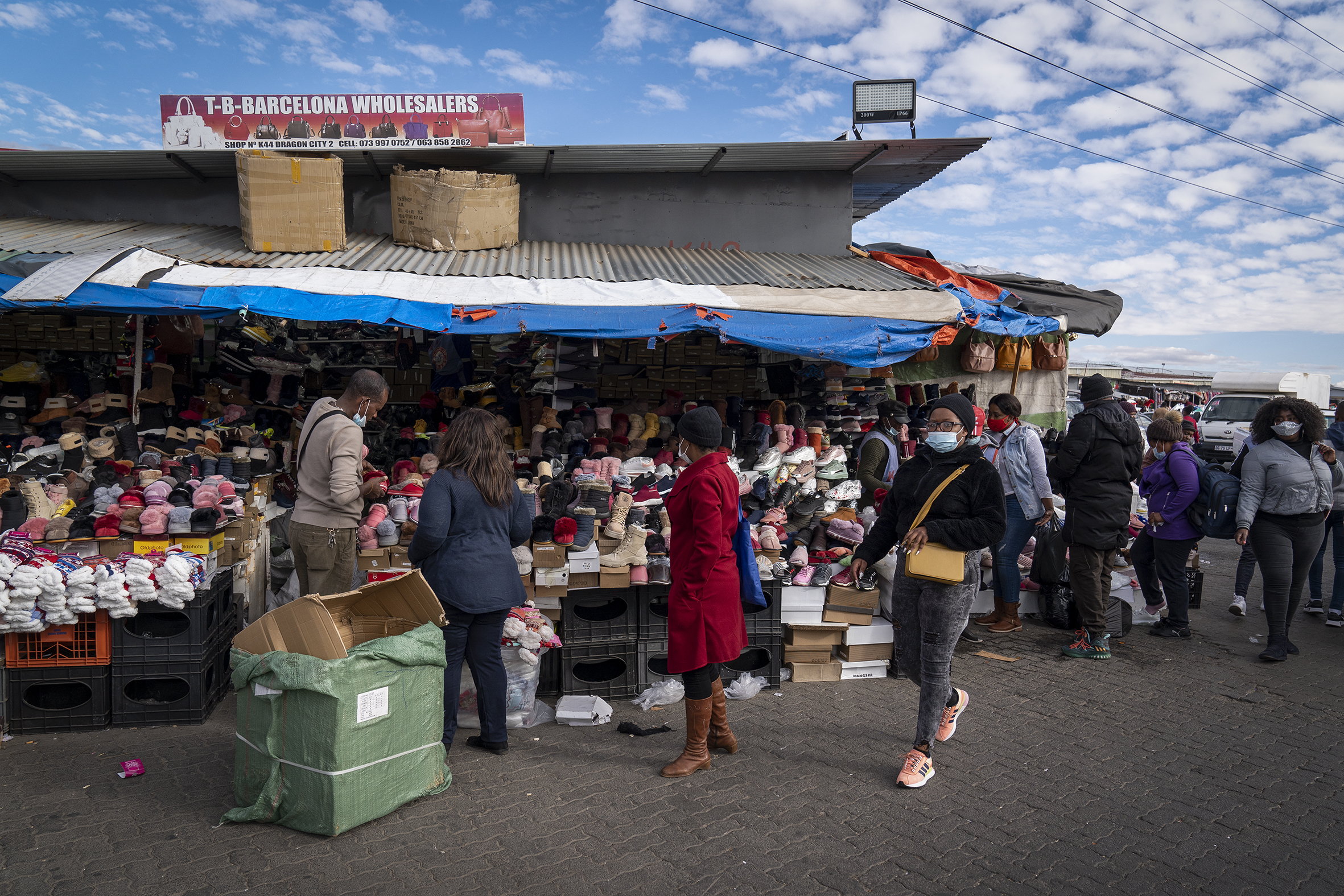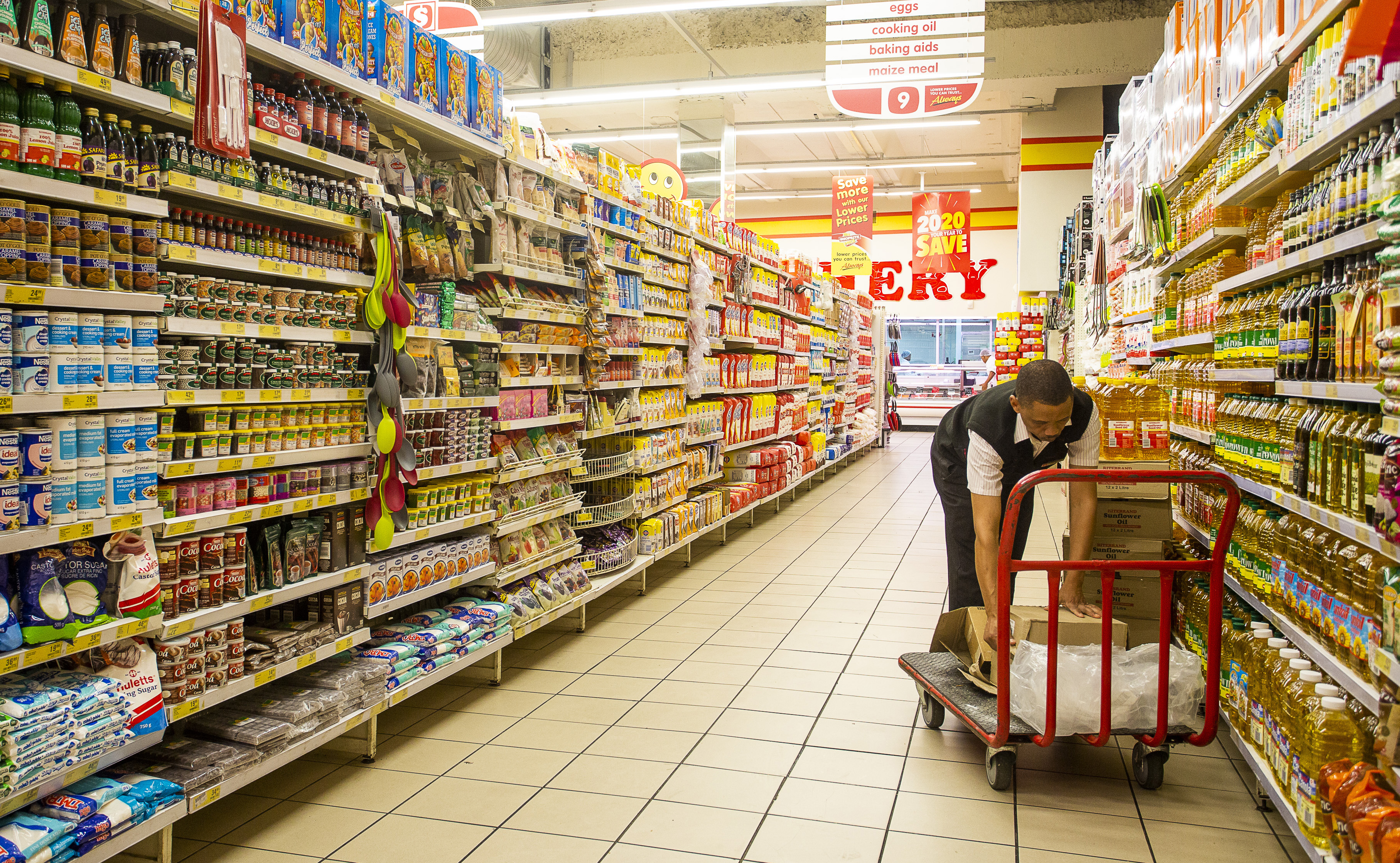According to former Eskom CEO André de Ruyter, “If Eskom wants to build a transmission line, we pay a whopping two and a half times more per kilometre than NamPower does in neighbouring Namibia. It’s one of the many poisonous effects of our government’s insistence on local procurement”.
This claim is difficult to verify, but if the scale of this policy’s impact is remotely of this order of magnitude, then the cost of local content requirements in public sector contracts is hugely significant. Just think of the estimated 14,000km of transmission lines that need to be built over the next decade. These, according to Eskom, will cost R210-billion under current procurement rules.
There is evidence to suggest that local content requirements are driving up the cost of energy generation already. A 2020 study by DNA Economics found that local content regulations under the Renewable Energy Independent Power Producers Programme (Reippp) increased energy production costs by at least 10%, and up to 60% for some producers during the first five bid windows.
In August 2022, minister of Trade, Industry and Competition Ebrahim Patel drastically reduced the local content requirements for solar panels from 100% to 35% under Bid Window 5 of the Reippp. He said, encouragingly, that government’s “priority [was] to get as much electricity into the grid as rapidly as possible” and that this was “important for growth”. At the time, there were only two solar panel producers in South Africa and they were unable to cope with demand, thus delaying the connection of more energy to the grid.
 The government is pushing for localisation and for buying local. (Photo: Shiraaz Mohamed)
The government is pushing for localisation and for buying local. (Photo: Shiraaz Mohamed)
In the context of our deteriorating fiscal situation and decline in public services, it is simply not sustainable for the state to be forced to fork out additional scarce resources on domestic manufacturers. At a time of crisis, these additional costs make it less likely that the supply of electricity or any other service will improve. Such costs put additional strain on the fiscus at a time when National Treasury is warning that the country is facing a “debt trap”.
Read more in Daily Maverick: Treasury looks to rein in spending to avert budget blowout
Some supporters of localisation have suggested that paying a higher price for local goods can be justified if it leads to the generation of more tax revenue in the future. It can be the case that increased government expenditure leads to higher output, but only when the fiscal multiplier is more than 1 (every R1 spent by the state generates more than R1 in GDP). Research published by the South African Reserve Bank in 2021 shows that the multiplier effect of government spending is zero, meaning that additional government spending has for some time now contributed nothing to economic growth. This makes the argument for localisation as a way to stimulate economic activity in South Africa extremely weak in the current context.
We cannot afford a localisation policy this costly
Instead, we should heed the interpretation of the Constitution advanced by the State Capture Commission of Inquiry, headed by Chief Justice Raymond Zondo. In its final report, published in January 2022, it stated that “when a choice must be made between the competing virtues of localisation and lower cost ... legislation should make it clear that in such a case the critical consideration is value-for-money.” CDE couldn’t agree more.
Households, in the meantime, are being hit especially hard by a cost-of-living crisis. Other aspects of localisation, such as high tariffs on imported goods, are further aggravating this.
Take the complicated example of chicken. Following an investigation by the International Trade Administration Commission (Itac), recommendations were made to minister Patel to impose anti-dumping duties on frozen chicken from five countries (up to 265% for Brazil) for five years. These tariffs were provisionally imposed between December 2021 and June 2022. However, despite his agreement with Itac that dumping had taken place, minister Patel announced in August 2022 that the anti-dumping duties would be suspended to ease food inflation.
The moratorium subsequently expired at the end of July 2023 and the duties were reinstated. Interestingly, the Department of Trade, Industry and Competition indicated that “if there are price increases aimed at taking advantage of the introduction of the antidumping duties”, they would again be suspended.
 Amie CEO Paul Matthew says South Africa is facing a ‘chicken price tsunami due to rampant inflation, global food and commodity shortages, the state of the economy post-Covid-19, the impact of the war in Ukraine on global food security, the escalation in fuel, transport and electricity costs, increasing trade tariffs, supply chain disruptions and the fact that wages are decreasing and unemployment is increasing.’ (Photo: Gallo Images / Jacques Stander)
Amie CEO Paul Matthew says South Africa is facing a ‘chicken price tsunami due to rampant inflation, global food and commodity shortages, the state of the economy post-Covid-19, the impact of the war in Ukraine on global food security, the escalation in fuel, transport and electricity costs, increasing trade tariffs, supply chain disruptions and the fact that wages are decreasing and unemployment is increasing.’ (Photo: Gallo Images / Jacques Stander)
The reintroduction was denounced by Association of Meat Imports and Exporters South Africa’s CEO Paul Matthew, who wrote, “Raising import tariffs on chicken meat products may boost profits for domestic producers in the short term, but it will not address the real cause of the domestic industry’s problem ... Reintroducing tariffs on chicken meat imports would therefore amount to imposing pain on the country without any gain in the medium- to long-term.”
Where are the benefits?
This raises the important question of whether local producers are even benefiting from this policy. Astral, the country’s largest poultry producer, is currently operating at a loss thanks to a difficult business environment, including a lack of municipal services and reliable energy supply. If it is struggling to supply its chicken to the South African market at current prices and will not be allowed to raise them, then it is unclear how they are meant to benefit from the reintroduction of tariffs. Meanwhile, the higher tax on imported chicken will raise costs for consumers.
Interestingly, minister Patel rejected an application from a local producer to increase import duties on frozen vegetables from 10% to 37%, citing concerns about food inflation and the possible impact on the lower segment of the market. This would seem to signal concern for consumers ahead of domestic producers.
In this context, the April 2023 decision by the Department of Health to import paediatric pneumococcal vaccines from India at a third of the price offered by the state-subsidised local manufacturer Biovac, should be seen as the right one.
Government’s inconsistency regarding tariffs on food products suggests that it is struggling to decide what to prioritise: helping consumers facing food inflation in the double digits or protecting local producers against lower-cost international competitors.
Further, despite indications that government is becoming increasingly concerned about the costs of localisation, the recent Public Procurement Bill demonstrates that it remains fully committed to pursuing localisation through preferential procurement. There is little sign that government has an overarching, coherent vision for the economy.
Localisation may seem like a silver bullet, an easy solution to many of our economic ills. Unfortunately, as it is practiced in South Africa today, localisation measures such as preferential public procurement, tariff increases and many others are unaffordable and counterproductive.
If we continue down this road, it will quickly start to become self-reinforcing, pushing us onto a path that will be difficult to leave. More and more inefficient firms will request more and more protection as they confront an untenable situation where input costs are rising and municipal services are declining. To avoid that, government needs urgently to abandon the localisation approach and focus squarely on fixing the fundamentals affecting the business environment. DM
Stefan Schirmer is the director of research at the Centre for Development and Enterprise (CDE). Rehan Visser is a senior policy analyst. This article is based on a CDE report “The Seven Sins of Localisation: Can South Africa afford this costly policy?”




 Amie CEO Paul Matthew says South Africa is facing a ‘chicken price tsunami due to rampant inflation, global food and commodity shortages, the state of the economy post-Covid-19, the impact of the war in Ukraine on global food security, the escalation in fuel, transport and electricity costs, increasing trade tariffs, supply chain disruptions and the fact that wages are decreasing and unemployment is increasing.’ (Photo: Gallo Images / Jacques Stander)
Amie CEO Paul Matthew says South Africa is facing a ‘chicken price tsunami due to rampant inflation, global food and commodity shortages, the state of the economy post-Covid-19, the impact of the war in Ukraine on global food security, the escalation in fuel, transport and electricity costs, increasing trade tariffs, supply chain disruptions and the fact that wages are decreasing and unemployment is increasing.’ (Photo: Gallo Images / Jacques Stander)